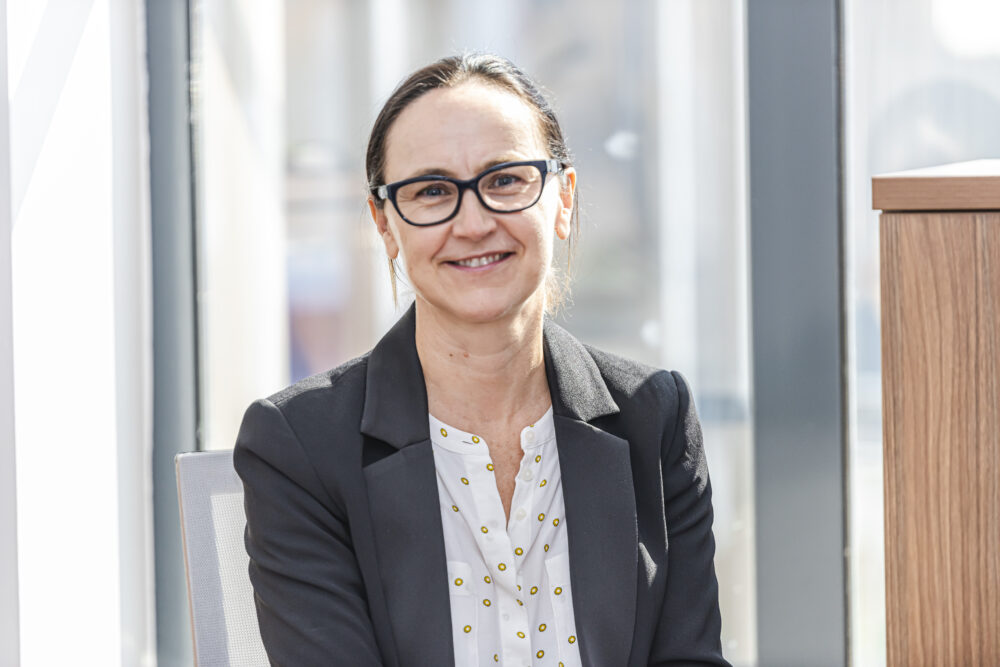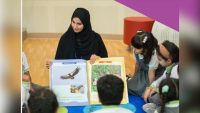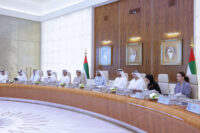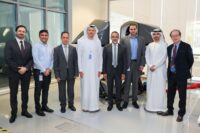Oona Carlin is the Executive Principal Cheltenham Muscat and Director of Education for Edureach Education, which owns and operates international schools across eight countries and three continents.
She has been working in the education sector for the past 28 years and earlier served as the Principal of Kings College Doha from 2020 to 2022. She is credited to have successfully led the school through the pandemic, establishing the school’s reputation for being caring and child centred.
Carlin’s outstanding leadership resulted in the school achieving the highest possible Qatar National School Accreditation award in June 2022. The school was judged to be ‘highly effective’ overall and in every area and is therefore rated as one of the top schools in Qatar.
Prior to this, Carlin held leadership positions at prominent UK independent schools. She has also gained international experience, working at a school in Colombia. As a Biochemistry graduate from Imperial College, London; Carlin started her career as a science teacher and relishes the opportunity to engage personally with children, parents and teachers.
In a conversation with Education Middle East, Carlin shares her journey as an educationist and her views on the future of STEM education.
What motivated you to pursue a career in education, and what has been the biggest highlight?
I wanted a career that was varied with each day delivering a new challenge. Working with children always brings something new; even if you are repeating an activity, you have done year after year, it is always approached in a different way every time.
Schools are more than just establishments to impart knowledge. It is through shared experiences that learning becomes fun, and long-lasting [cherished] memories are formed. At Cheltenham Muscat we pride ourselves in an all-round education with activity and community being of paramount importance.There are so many highlights of my career, but to choose one I will have to choose my charity cycle from London to Paris. I completed this for a local hospice with two Sixth Form students. It was the toughest challenge I have ever undertaken and had I not been with the students I may well have given up, but they kept me going and I kept them going. We spent the week together, cycling through the worst September weather, dealing with punctures and falls but the final approach up the Champs Elysees over the street cobbles was a painful but exhilarating experience, made better by sharing it with my Sixth Form cycling companions.
Prior to moving to Muscat, you led King’s College Doha in receiving the highest possible Qatar National School Accreditation award under your leadership. What specific actions did you take to achieve this recognition?
It was all about teamwork; students, staff and parents worked together to ensure that we were offering the best possible education in Qatar. The school community was fully committed to the school values and vision with a lifelong love of all-round learning at the heart of everything we did at the school. The key to a successful school is to have fun together every day.
As a former science teacher, what are your thoughts on the future of STEM education? How can science teachers keep themselves abreast of all the latest changes?
I love teaching and count myself especially lucky that I specialised in teaching science. It is easier to learn/remember through doing and the basis of all science teaching is practical work. The use of practical work gives all science teachers an advantage, students are much more likely to be able to recall their practical science lesson.
STEM education is extremely important; a strong grounding in STEM will prepare students for their future career(s). STEM subjects provide students with the skills they need to problem solve, to be adaptable and to be self-starters. As children prepare for an ever-changing world of work, having the right skills for work is probably more important.
It is important for all teachers to keep up to date. It is in relating our lessons to current developments and giving examples recognised by students that we become the best teachers. Making our teaching engaging and current is really important.
Staff training plays an important role in preparing and equipping teachers with the latest updates.
At Cheltenham Muscat we have a well-developed staff training programme to ensure that all teachers are supported and up to date. We encourage our teachers to learn from each other and their colleagues at Cheltenham UK.
What is your mandate as Director of Education for Edureach?
I work with the Heads/Principals within the group to provide support to ensure delivery of quality education in each school. I ensure consistency and flexibility in our approach to teaching and learning by reviewing the quality of education each school provides through monitoring the pupil outcomes achieved at each school.
How do you dabble between your two present roles – as Executive Principal of Cheltenham Muscat and Director of Education for Edureach – and how are they different?
I am not sure I would use the word ‘dabble’ as I take both of my roles seriously; they are both important to me and both complement each other. As the Executive Principal at Cheltenham Muscat, I can see the daily challenges faced by our school leaders. I am able to empathise and support the leaders in our other Edureach schools. Successful initiatives we implement at Cheltenham (or have previously implemented at King’s Doha) can be successfully launched in other schools as I have first-hand experience of any challenges we faced on the ground. I am also able to support other Heads and Principals with their country specific initiatives and ensure that they have the resources they need to make these a success.
We are a small and tightknit team of school leaders, and we have a wealth of experience within the group; therefore, being an Executive Principal of one of the schools is an excellent way to ensure that we are all committed to our individual school successes, as well as celebrating the joint successes of our schools.
As you’ve worked in both the UK and the GCC, tell us how easy or difficult it is to build a high growth educational business in the GCC vs Europe.
Both markets have their different challenges. In the UK a school will generally have the tradition and reputation behind it to ensure that it is well established in the community. In the GCC the schools are much newer and as a result we lean on our UK schools for guidance and support to ensure that we are delivering the best British education in an international setting while embracing the heritage and culture of the country we are in. We do not focus on high growth but on quality, we ensure that our schools are fully prepared and resourced for any planned growth.
Any word of advice for education business professionals on how to offer quality education while delivering returns to shareholders?
Focus on the children, if the children in our schools are happy, settled and supported then they will thrive. If our children are thriving, then their parents will be happy and they (the parents and the children) will become vocal advocates for your successful school.
How do you envision the future of education, and what trends do you see emerging in the next five years that will impact how schools operate?
The use of AI in education is the one to watch. It could revolutionise the way we teach and the way our pupils learn; the educational landscape could be very different in five years, watch this space!








